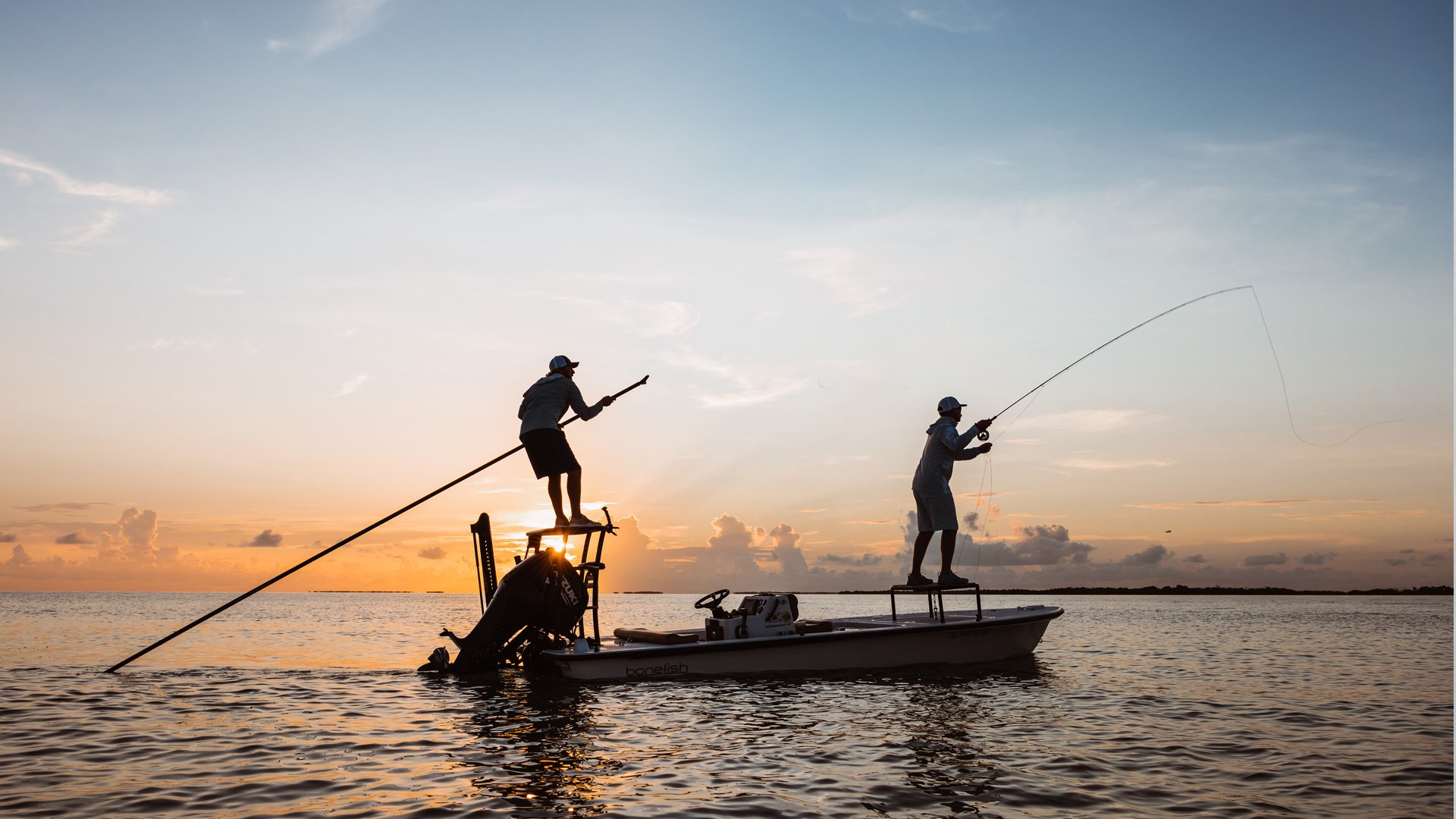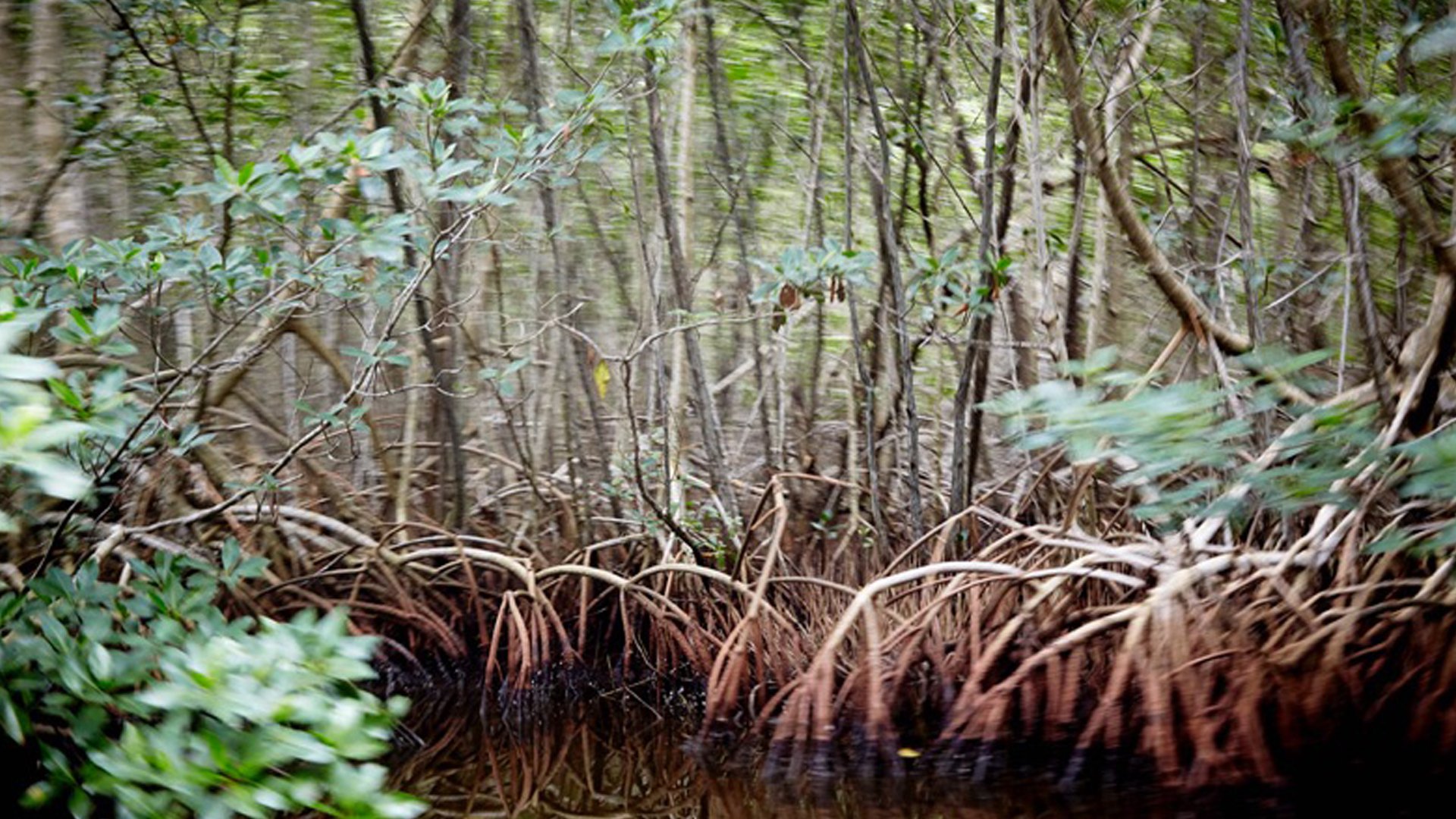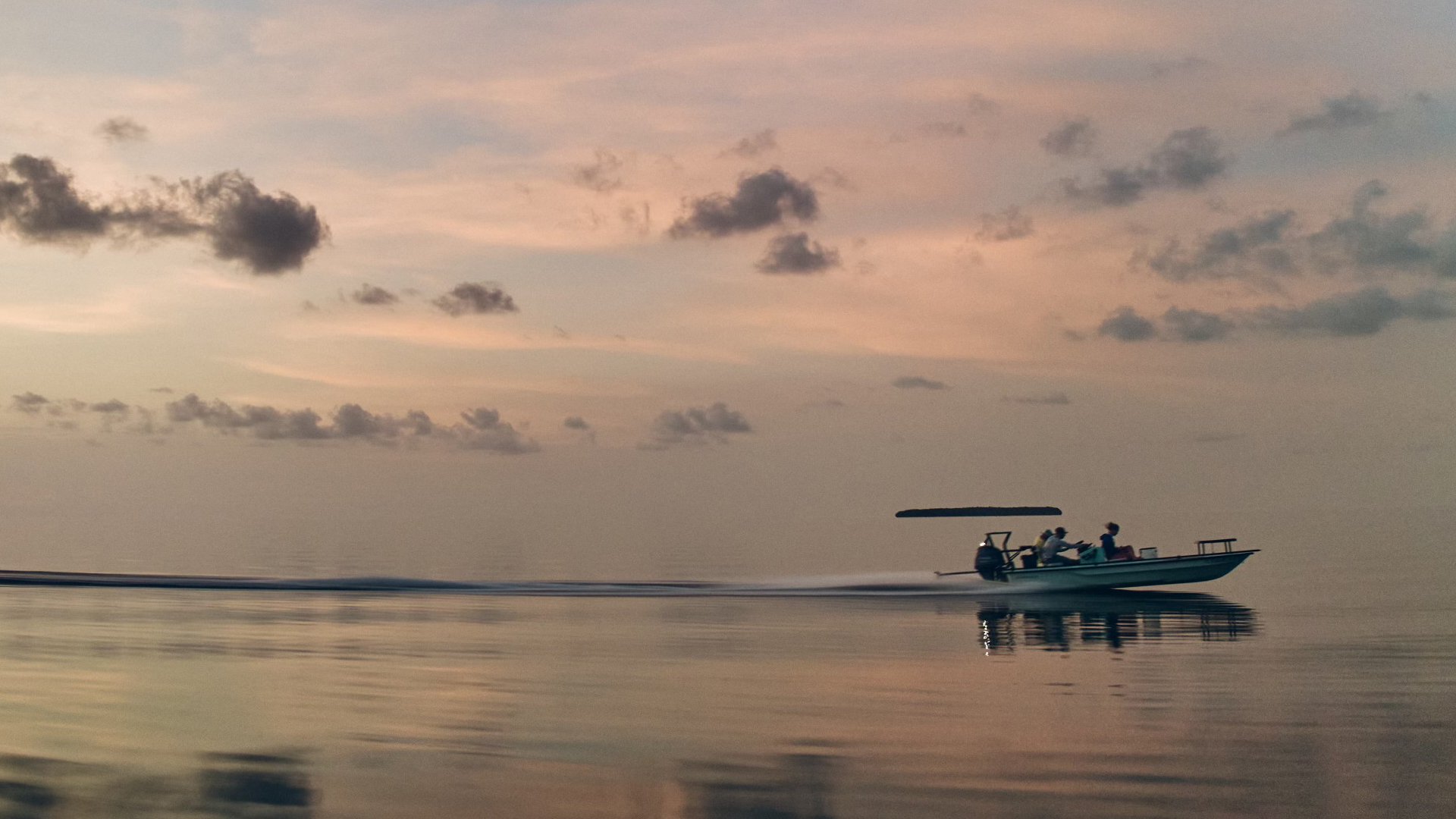
Fly Fish The Everglades For Tarpon, Snook, and Redfish
The Everglades is known in the fishing world as one of the most unique locations to fly fish for tarpon, snook, and redfish.
As far as fly fishing destinations go, the Everglades is arguably the most unique venue on the planet to fly fish for tarpon, snook, and redfish. The Everglades National Park is surrounded by the coastline of the Gulf of Mexico and covers an area over 1.5 million acres. In addition to the park proper, the area considered the “Everglades” extends up the west coast of Florida past the 10,000 Islands National Wildlife Refuge, Goodland, FL, Marco Island, FL, and into the Rookery Bay Aquatic Reserve in Naples, FL. The majority of this entire area is shallow, fishable water that sets up well for sight fishing – a technique where anglers visually spot fish before presenting the fly, and the preferred method of fly fishing the Everglades.
While quietly poling the skiff in likely areas during the right tides, the guide will be looking for signs of fish. Nervous water, wakes, muddy patches, and tails can all indicate fish in the area and give clues to their general movement. It is up to the angler to be prepared for a shot and key in on these signs while the guide works quietly to position the boat.
When everything goes correctly (which isn’t always the case with fly fishing), the guide will call the shot, and of course the angler will make a perfect presentation to a fish who will inhale the fly with reckless abandon. When everything goes wrong (which happens more than most will admit) the fly will land in a mangrove just beyond the fish while the fly line slaps on the water dead center on the fish’s head sending it retreating to deeper water never to be seen again. The next five minutes will be spent licking wounds, and retrieving the fly from the bushes, which stirs up the mosquitos, who ultimately make it miserable fishing the rest of that shoreline.
Saltwater fly fishing can be unforgiving yet at the same time one of the most rewarding pursuits in the outdoors. Whether things go right or wrong, a day or two or ten on the water fishing the Everglades is an unforgettable experience to share with family, friends, or business colleagues, and the memories made and lessons learned are well worth the price of admission.
The Best Times Of The Year To Fly Fish The Everglades
Saltwater fly fishing is notoriously condition dependent, and the Everglades is one of the best places to fly fish year-round in all conditions. The Everglades is a labyrinth of mangrove islands and shorelines that provide protection from the wind in all directions and provides anglers many opportunities to fish in calm leeward areas. Tarpon, snook, and redfish use the entirety of the Everglades to survive and the vast nature of the area means that the fish constantly move. Fly fishing the Everglades is a real hunt through one of the wildest places in the US and can produce exceptional fly fishing in all seasons.
The spring/summer months (March-October) are the warmest, most stable weather months of the year. During March, the wind begins to blow from the southeast, which is the normal trade wind for the area. These southerly flows usher in warmer temperatures that trigger a major fishing event in Southwest Florida - the tarpon migration.
The Everglades backcountry usually sees the first of the migratory tarpon in March as more and more fish show up in April-June in the passes, bays, basins, and off the beaches. By mid-July the migratory tarpon have more or less moved on leaving the juveniles as the star of the show throughout the summer.
Snook start the spring by moving out of their deep backcountry winter haunts. March is typically the month where the Everglades is at its driest phase of the year, and where once there was water, there is no longer. As the water heats up, most snook make their way towards the beaches and passes to spawn as well as have close access to the deeper cooler waters of the Gulf.
Redfish are one of the most condition tolerant fish and can be found all over the Everglades throughout the year. Spring redfishing usually consists of sight fishing shallow shorelines for crawling and tailing fish, while the warmer water of the summer sees a lot of redfish schooled up on the flats of Florida Bay.
In the fall/winter months (November-February), the wind blows from the north and the water temperatures drop as “cold” fronts roll through the Everglades. The winter brings big changes to the fly fishing and presents new opportunities. Winter tides are some of the lowest of the year, and the north winds blow even more water out of the backcountry which forces fish out of the mangroves and out into the open. The cooler weather lowers water temperatures as the fish seek the shallows, as the sun warms them up quicker. Snook and redfish can be found spending more time in the skinny which makes for some of the best sight fishing of the year. The tarpon are mostly gone until warmer more stable windows of weather show up which ushers in some of the best tarpon fishing of the year. The windows of great tarpon fishing are usually small, but when it happens, it is hard to beat.
The Areas We Fly Fish
Capt. Chandler is a Florida resident and fishes the Everglades with his boat on a trailer. This gives him access to effectively cover water and put his clients on their best chances of catching fish. Chandler routinely runs Everglades fly fishing trips out of Islamorada, Flamingo, Chokoloskee, Everglades City, Goodland, Marco Island, and Naples.

Fly Fish The Everglades For:
Tarpon
Hooking a tarpon on fly is one of the most exciting moments possible in the world of outdoor pursuits. Their sheer size, willingness to grab a well presented fly, and their acrobatic reactions to being hooked make tarpon the star of the show for most in the Everglades.
Snook
Snook don’t get the attention they deserve in the fly fishing realms, and perhaps that is a good thing. Those in the know understand the appeal of this incredible gamefish. Snook are sneaky, and sight fishing a big Everglades snook on fly is one of the best challenges in the game.
Redfish
Redfish can be found throughout the entire Gulf coast of the US as well as the Atlantic waters north to Chesapeake Bay. The Everglades variety of redfish spend a lot of time in shallow water and make great year-round fly fishing targets for anglers of all skill levels.
Everglades Fly Fishing Charter Details
Capt. Chandler Williams offers full day and half day Everglades fly fishing trips and multiple boats are available for groups of more than 2 people. Contact us for current rates and availability. All trips include tackle/flies, fuel costs, launch fees, and a cooler with water and ice.
Payments And Deposits
Cash, Check or Venmo.
Credit cards through Venmo (additional service charges may occur)
$150 per day per guide deposit for all trips
Venmo or mail deposits to:
Chandler Williams
17A 12th Ave
Key West, FL 33040
What To Bring
Polarized sunglasses (amber, copper, and green lenses preferred)
Hat and any needed sun protection
9, 10, & 12 wt. rods (if own gear is preferred)
Quick drying clothing
Rain gear, jackets and pants
Shoes with non-marking soles
A positive attitude (most important part of having a successful trip)













